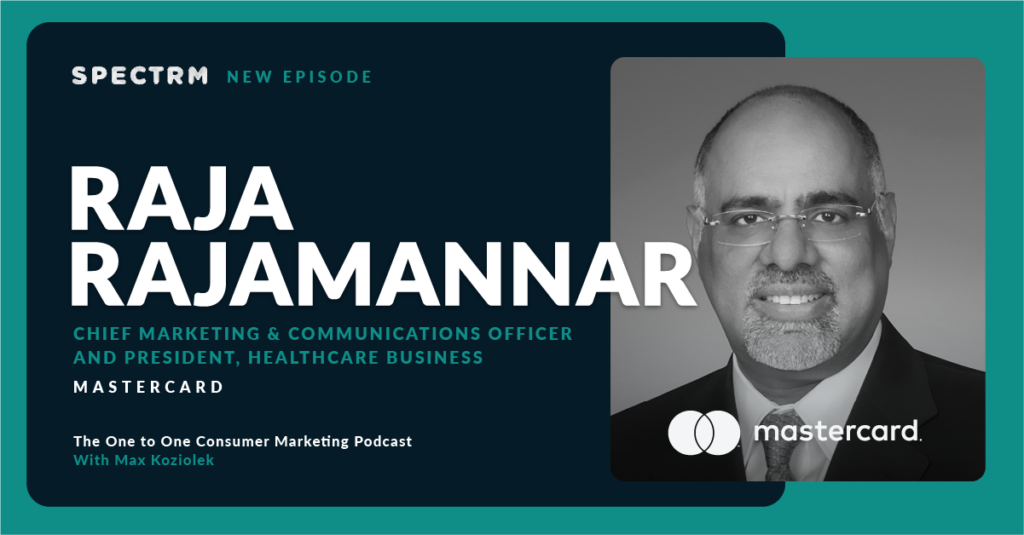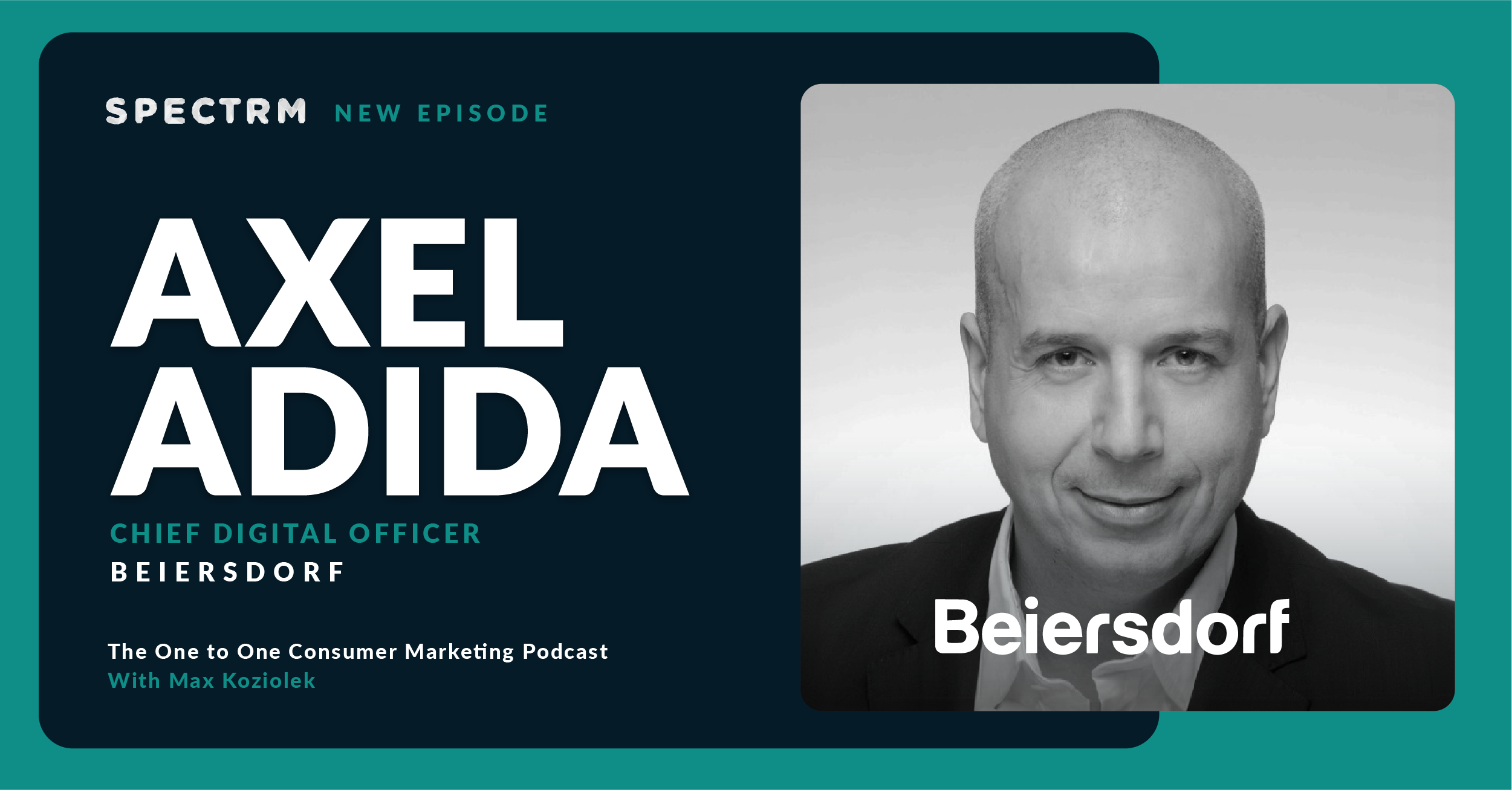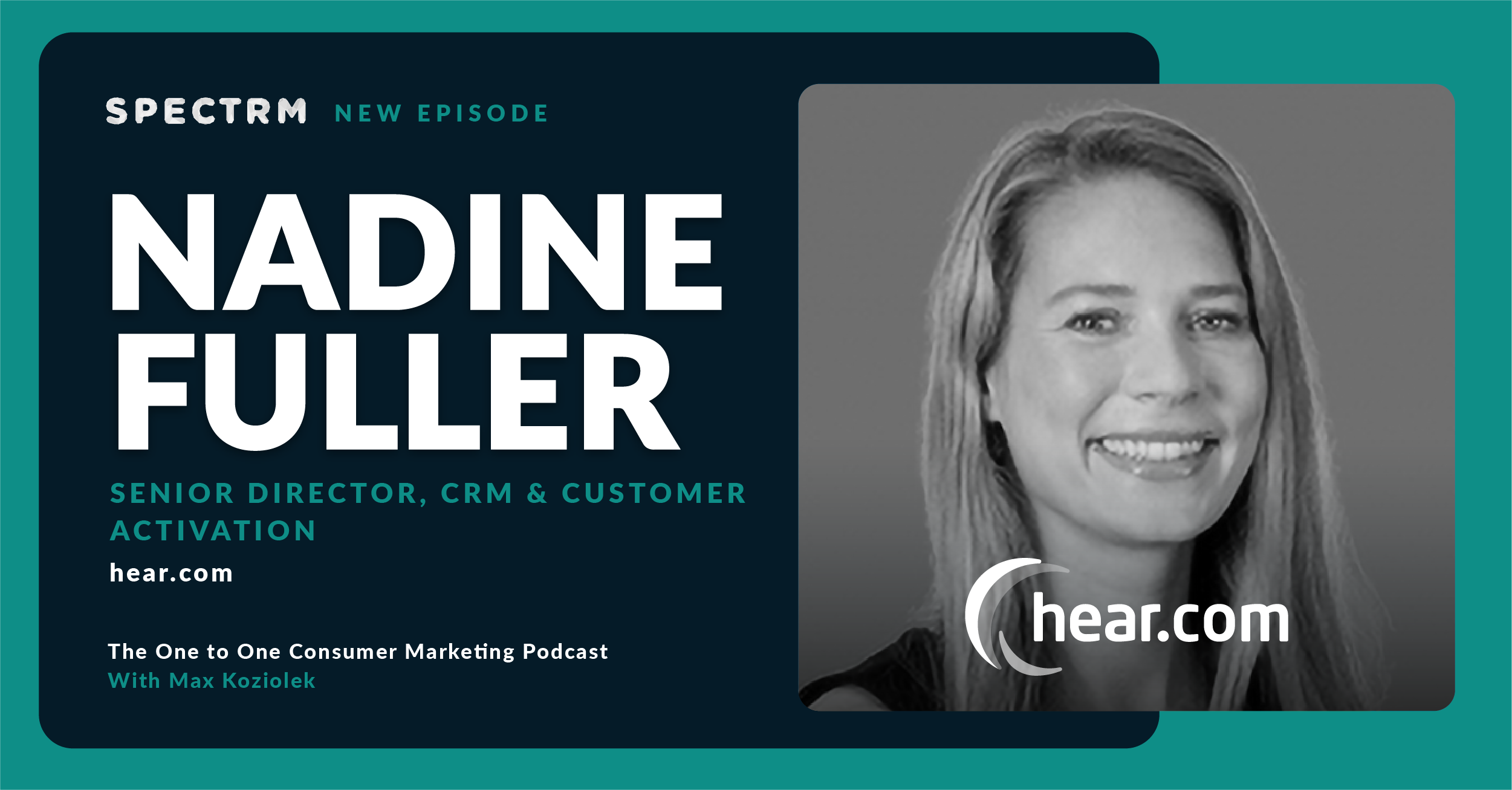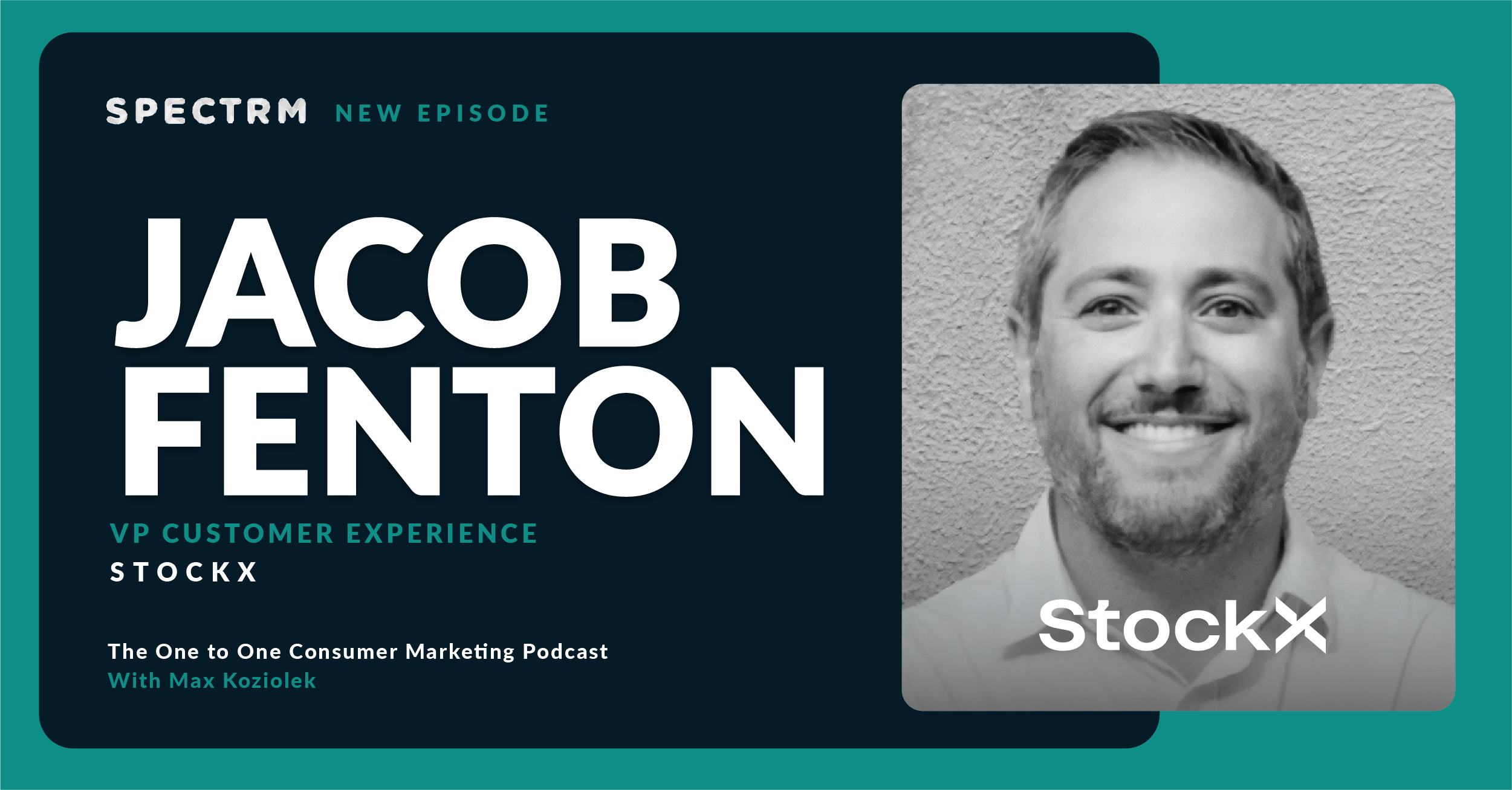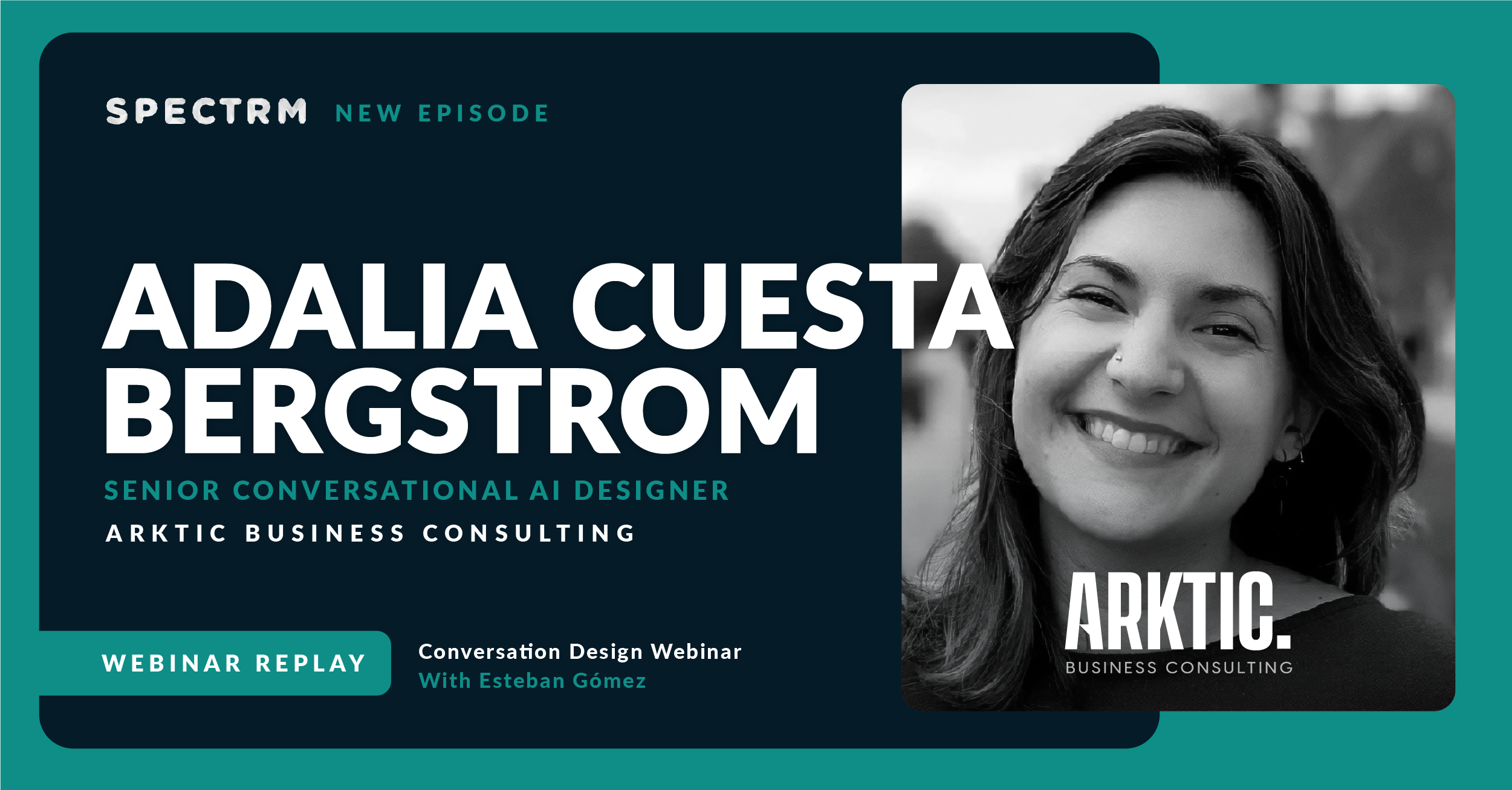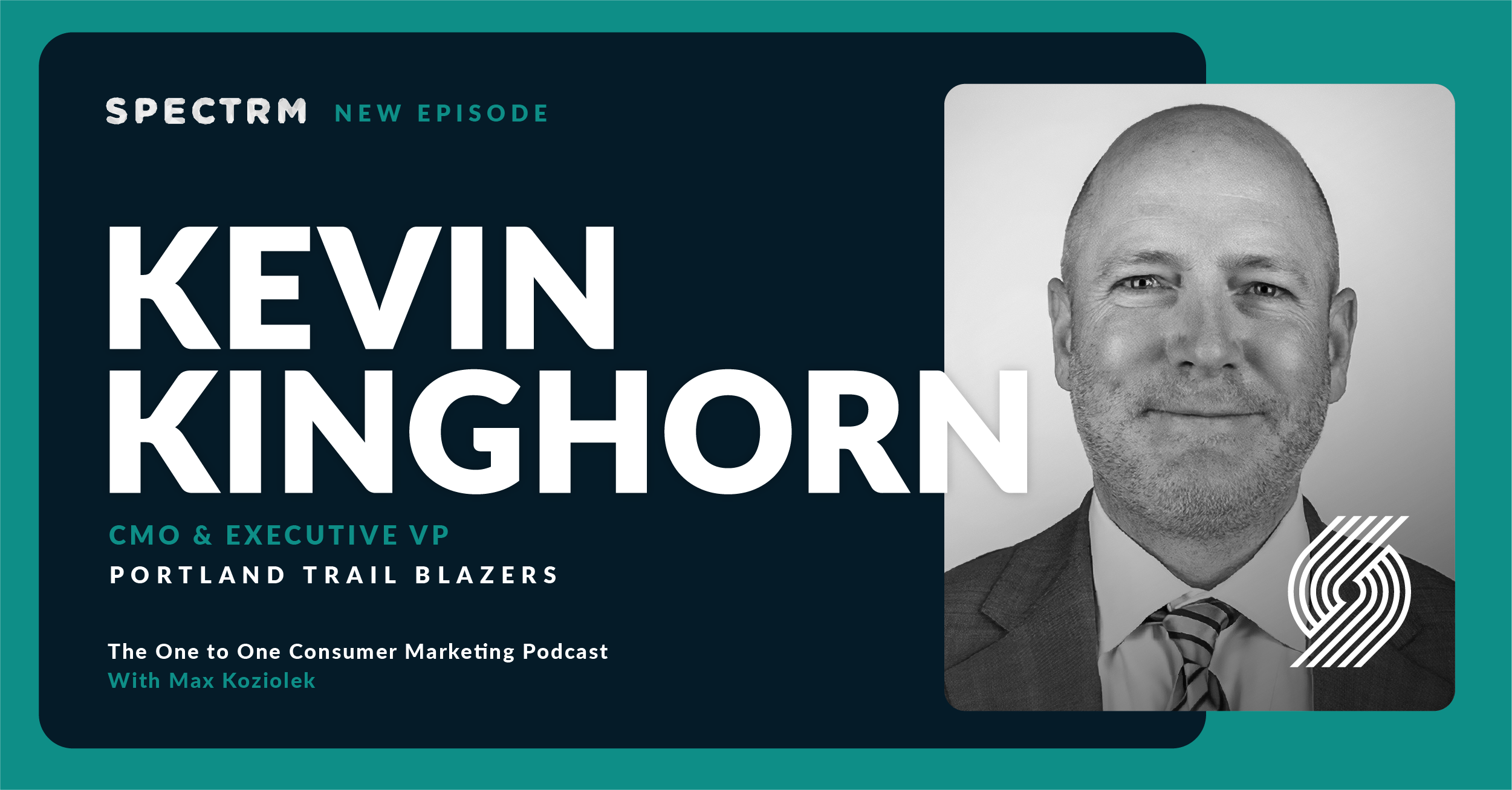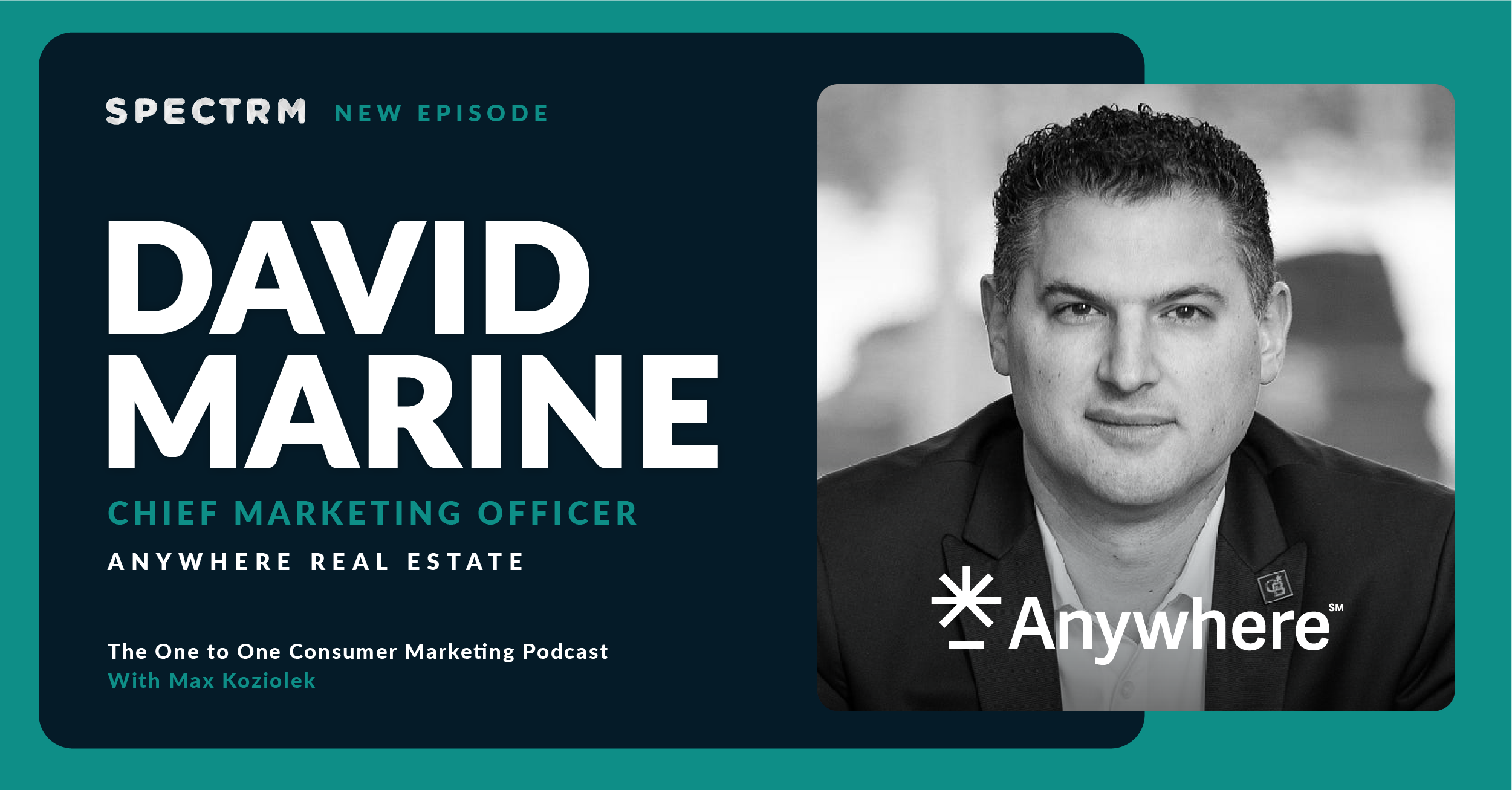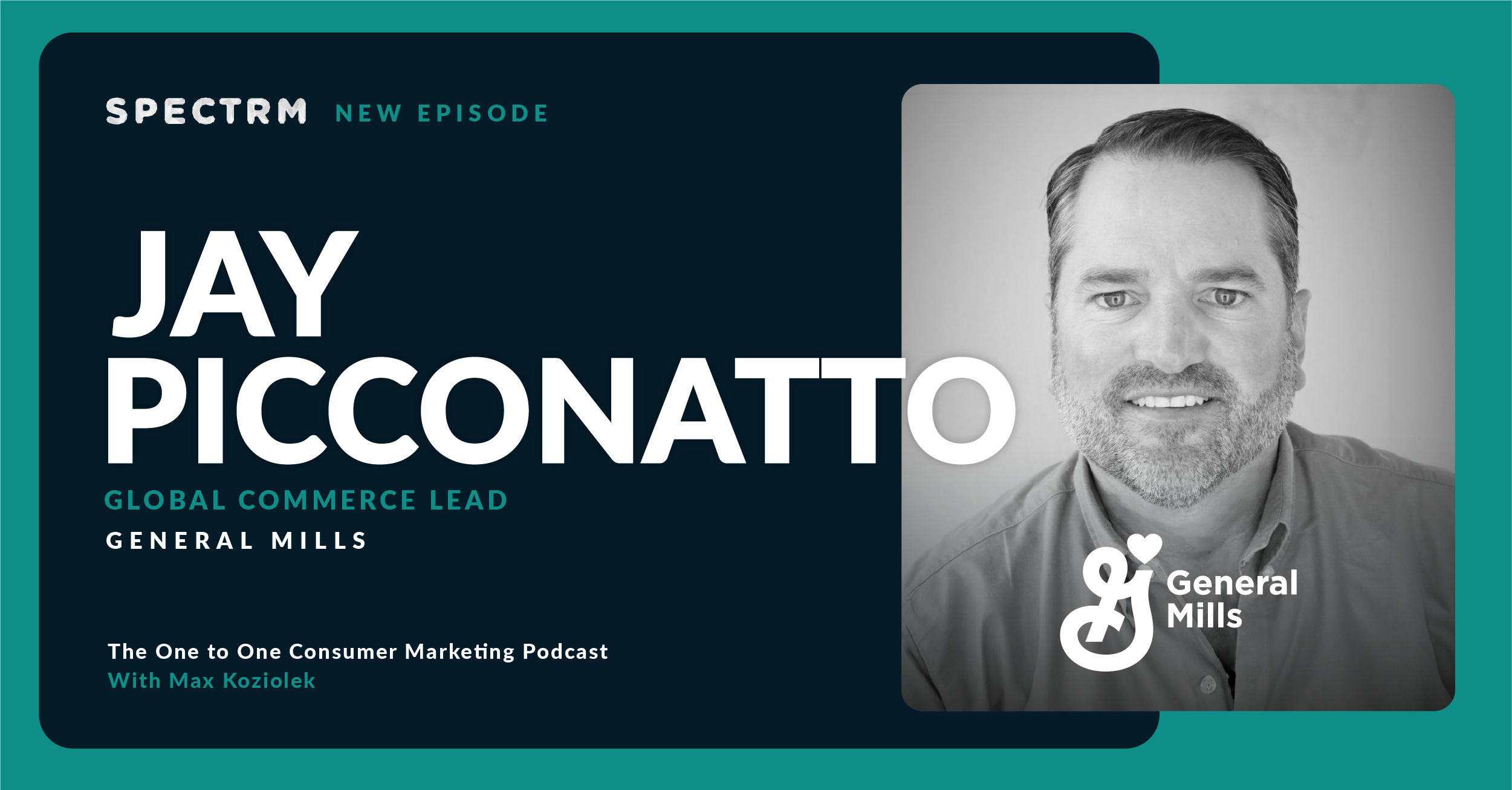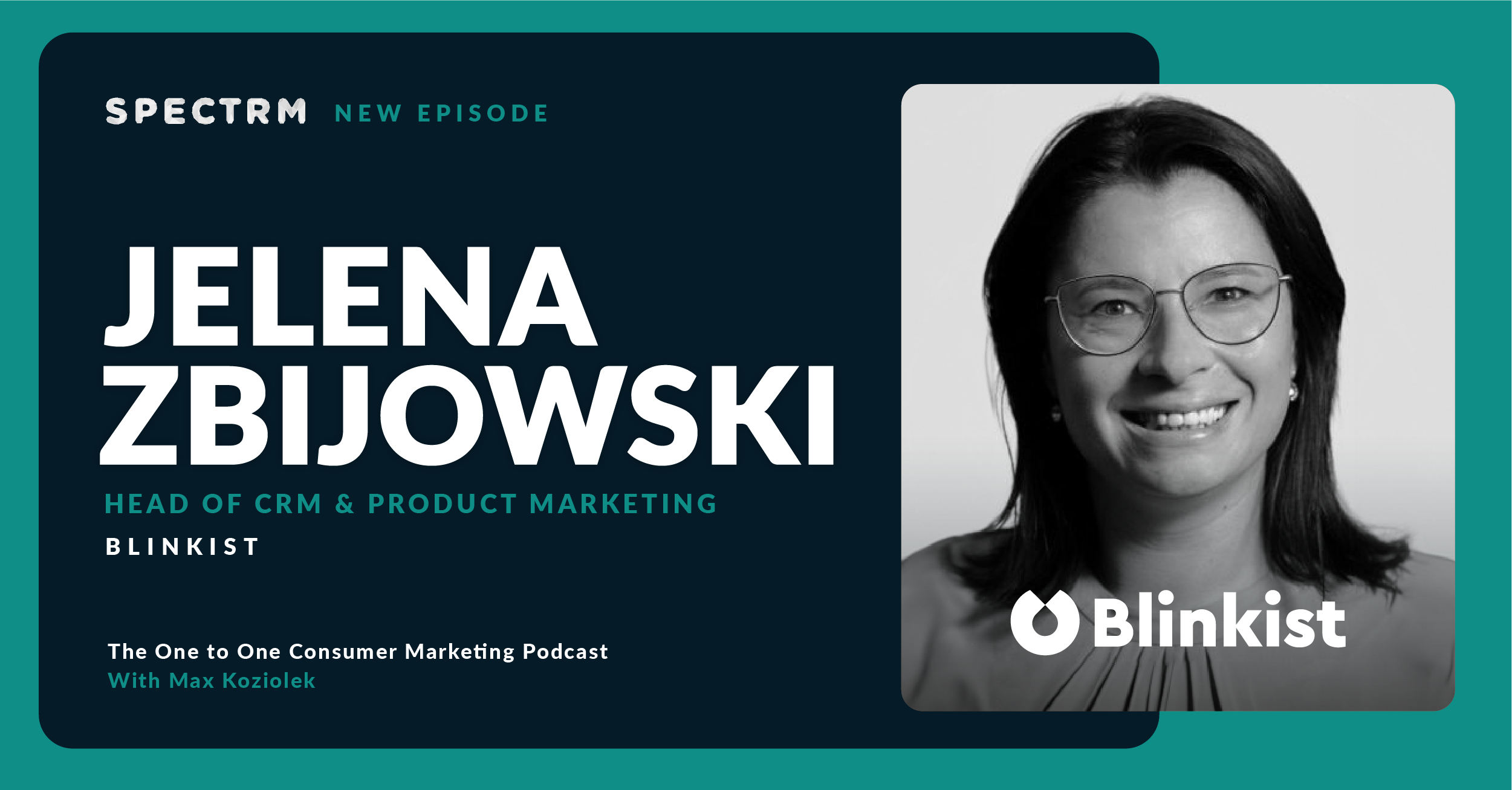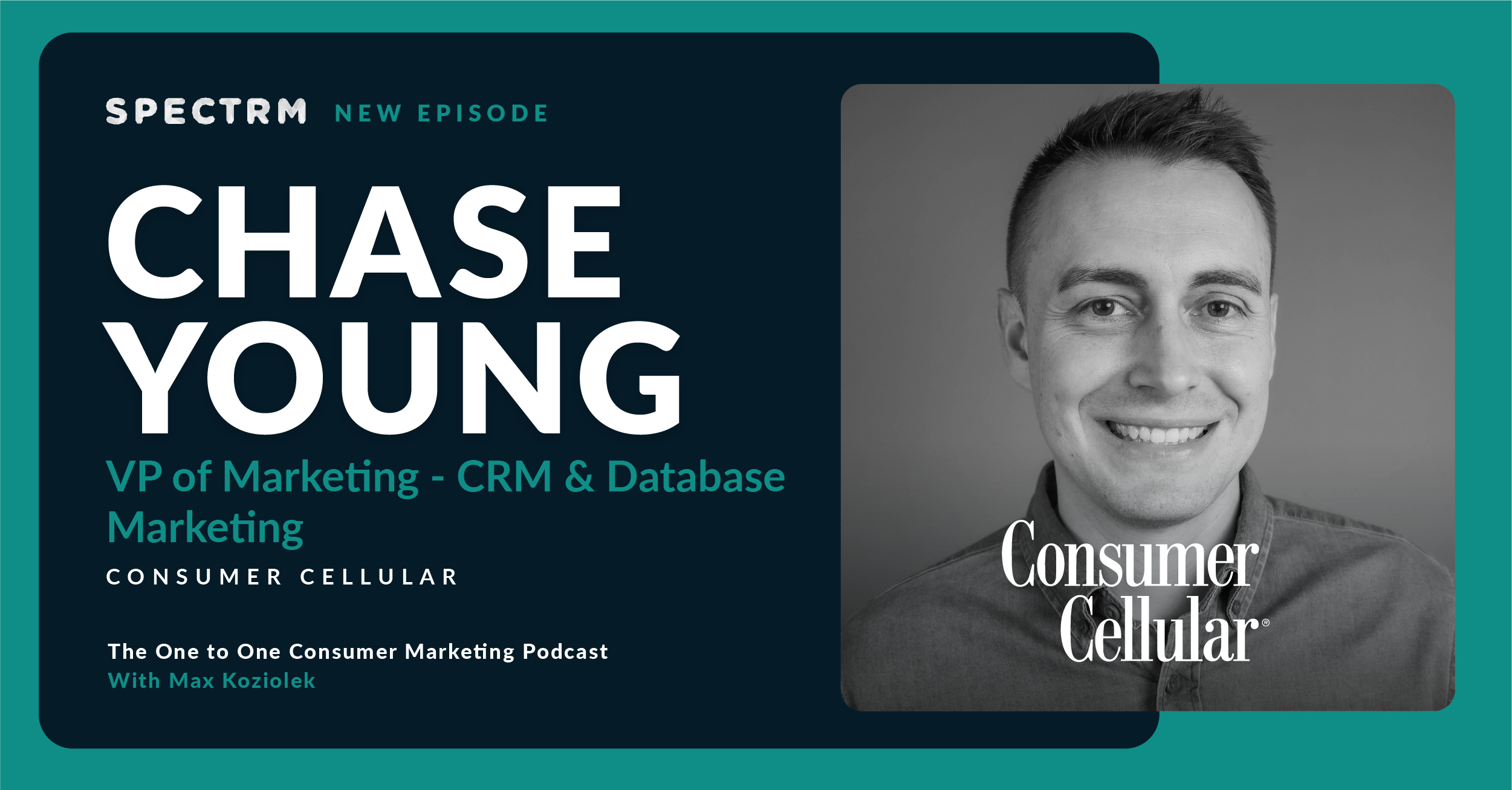Summary
Max speaks with Raja Rajamannar, Chief Marketing & Communications Officer; President, Healthcare Business at Mastercard. They discuss how marketers today should rethink traditional approaches like the purchase funnel and loyalty programs and start focusing on “preference management” instead. They also talk about what technology is shaping marketing, how new tech stacks will develop, and why augmented reality is the next game changer.
Topics discussed
- Why we need to challenge the classical principles of marketing and reimagine them for today’s customer behaviors and technology — as outlined in Raja’s book Quantum Marketing: Mastering the New Marketing Mindset for Tomorrow’s Consumers.
- Why traditional approaches like the purchase funnel and loyalty programs are no longer working, and what to do instead.
- How to create stickiness by taking a “preference management” approach to tracking and engaging customers.
- Why we’ll see a new breed of marketing tech stacks developed by up-and-coming companies — not run by the tech giants.
- Why augmented reality will be the next big tech game changer in marketing in its ability to deliver value to customers.
- How Raja made the shift from being an engineer to marketing when overhearing a cosmetic advertising campaign and stepping in to suggest a better one.
A lot of principles that we are talking about today are all wrong. They need to be totally reinvented and reimagined. That's why I started writing the book and taking areas, starting from consumer insights about distribution, pricing, advertising, sponsorships, experiences, loyalty programs, every single aspect of the marketing ecosystem, whatever the theories and principles and frameworks behind them, they are gone. So you need to reinvent marketing, reimagine marketing, and that new way of doing marketing is what I call quantum marketing.
Guest biography
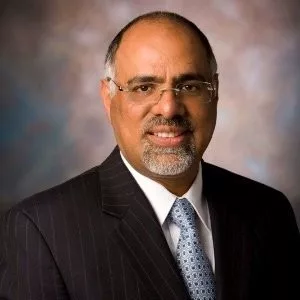
- Transformative business leader with substantial senior management experience across different geographies around the world. Managed large-scale businesses at Fortune 500 companies across financial services, consumer-packaged goods and healthcare.
Company overview
Mastercard is a global technology company in the payments industry. Our mission is to connect and power an inclusive, digital economy that benefits everyone, everywhere by making transactions safe, simple, smart and accessible. Using secure data and networks, partnerships and passion, our innovations and solutions help individuals, financial institutions, governments and businesses realize their greatest potential. Our decency quotient, or DQ, drives our culture and everything we do inside and outside of our company. With connections across more than 210 countries and territories, we are building a sustainable world that unlocks priceless possibilities for all.
Industry: IT Services and IT Consulting | www.mastercard.com
Subscribe to the podcast newsletter
Transcript
00:00
Raja Rajamannar
A lot of principles that we are talking about today are all wrong. They need to be totally reinvented and reimagined. That’s why I started writing the book and taking areas, starting from consumer insights, about distribution, pricing, advertising, sponsorships, experiences, loyalty programs, every single aspect of the marketing ecosystem. Whatever theories and principles and frameworks behind them, they are gone. So you need to reinvent marketing, reimagine Marketing. And that new way of doing marketing is what I call quantum Marketing.
00:42
Max Koziolek
Hello and thank you for listening to another episode of the One to One Consumer Marketing podcast today. We’re excited to welcome Raja Rajamannar to the show. Raja is known for steering Fortune 500 giants across sectors from finance to healthcare, currently serves as Chief Marketing and Communications Officer of Mastercard. He not only guided their global marketing efforts, but also had their healthcare division. Roger is ranked among Forbes top five World’s most influential CMOs and sits in the CMO Club hall fame and receives a WFA Global Market of the Year in 2018. Beyond business, his commitment extends to serving on boards and nonprofits, including the New York City Ballet and the World Federation of Advertisements. Thanks for chatting with me today.
01:27
Raja Rajamannar
Thank you so much. Really appreciate the opportunity to have this conversation and convey a few thoughts to your audience.
01:34
Max Koziolek
So I gave a bit of an introduction for you. Do you want to tell our listeners a little bit more about your journey and how you landed at Mastercard?
01:41
Raja Rajamannar
Yeah. So it’s been a long journey in excess of 35 years. So I’m a trained chemical engineer. I did my MBA from the Indian Institute of Management in Bangalore and I wanted to become an environmental management graduate. But some certain interesting circumstances have moved me into marketing and 35 years later I’m still very much in marketing and enjoy every single day. So along the course I spent time. I started my career at Asian Paints, which India has been the largest paint company at the time. I believe it still is. And I joined as the founding flunky of the marketing department and then I moved to Unilever after three and a half years and I was in sales first and then I moved into marketing. Then after that I moved to Citibank and I changed the country.
02:35
Raja Rajamannar
I moved to Dubai from India and I was there for seven years and from there moved to Citibank in Europe. I was based out of London, responsible for Europe, Middle east and Africa regions for the consumer assets. Then I went to the US and I became the chairman and CEO of Diners Club and then I became subsequently the head of all cards. We used to call them core credit cards for North America at Citibank. And then I moved to healthcare and I was there in healthcare for four years before I came to join Mastercard. And I just completed my ten years at Mastercard last week.
03:12
Max Koziolek
Congratulations. A decade. A decade in Mastercard.
03:16
Raja Rajamannar
Amazing. Yeah.
03:18
Max Koziolek
A chemical engineer that tourists to marketing. How did that happen?
03:22
Raja Rajamannar
So it’s pretty interesting, right? I was doing my internship during MBA particular the first and the second years. I had today an internship and I chose an organization called Lacway, which was a color cosmetics company in India. And I was given a project on logistics because of my engineering background. And I was working on it sitting at a small desk outside my boss’s cubicle. And I was overhearing the conversation that my boss was having with the agency people in those days in India, 35 years back, there used to be a bias and a taboo that women who use color cosmetics are trying to draw attention to themselves, which means they’re of a loose character. It was like a big sociological perception, unfortunately. So they were struggling. How do you break through this?
04:16
Raja Rajamannar
And they started writing an ad which said that if color be to beauty what music is to mood play on. So I’m sitting outside scratching my head. What does it even mean? I couldn’t understand. It was like a puzzle. I said, why are they complicating it? Why don’t they write something simple? And I wrote it. I said, is it bad to look good? And then I put a picture of a woman there with color cosmetics. And I wrote a couple of lines and I said, how about this? I walked in and they looked at it. They loved it. And the chairperson of that company happened to be there in the Bangalore branch that day. She saw it, she loved it. And it went on to become an award winning campaign.
04:54
Raja Rajamannar
When that happened, I said, maybe I’m actually good at marketing, so let me get into marketing. I’ll come to environment later. And that’s when I sort of got into marketing. And as I said, here I am after 35 years and thoroughly enjoying. And it’s such a dynamic field and it’s very gratifying to me as a marketer where you exercise your right brain, your left brain, and whatever you create takes shape right in front of you and you can impact the fate of your company very positively and significantly. And you can also actually impact the world in a big positive way. And so it gives me everything that really one should look for in a profession. And I’m grateful for it.
05:38
Max Koziolek
It’s a remarkable story, I have to say. And it’s amazing. How having doing an internship and then overhearing something and that how that turns into a life changing, career changing moment, that’s remarkable. But let’s stay a little bit with the marketing world with a bird view on that. You wrote a best selling book, Quantum Marketing, Mastering the new Marketing Mindset for tomorrow’s consumers, that came out in February 2021. In the book, you describe how different technologies are driving fundamental change for marketers. In November 21, Chat GPT came out and an explosion in generative AI followed. Would you change the book in any way with today’s knowledge?
06:31
Raja Rajamannar
Firstly, I feel very grateful. Now, when I wrote this book, Quantum Marketing, I was trying to see where the world is going, not this year or the next year, but over the next few years. And I did quite an exhaustive amount of studying of various technologies, various sciences that impact marketing and so on. And I wrote this book. And one of my key considerations was that this book should not become irrelevant or obsolete in the next two, three years or even next five years. And so one of the technologies, as you rightly talked about, I mentioned about artificial intelligence and how artificial intelligence is going to be a game changer. And I have been using artificial intelligence for the last six years now.
07:15
Raja Rajamannar
When Chat GPT made the announcement in November 2022, which is about a year and a half after I launched my book, suddenly everyone started taking notice. Sentences. This became a new phenomenon. But generative AI, we should recognize, is just one subset of AI. But it makes accessibility to AI so easy that even a layperson who has no clue of what AI is, can use it. That’s the beauty of chat GPT and the other equivalent engines, generative AI engines that are there. So when you look at the concepts that I have written and what happened after Chat GPT, it is a beautiful validation of what I had written in the book. It’s an absolute validation, and I feel really good about it because it didn’t overthrow anything that I have written in the book.
08:08
Raja Rajamannar
It’s actually validating, it’s reinforcing what I have now, my book also, in addition to becoming a Wall Street Journal bestseller, it has been translated into ten different languages, from Chinese to Japanese to Korean to Thailand and Turkish and so on. And it has become actually a bestseller in multiple countries. And the reason is because of the foundational elements, my whole premise is this. If you look at how marketing is practiced even today, a lot of the principles and frameworks of marketing were formulated 60, 70 years back when there was no internet, there was no mobile, there was no social media there was no artificial intelligence. World was very different. There were not even mobile phones. Right? So are those principles? Sometimes when you say principles could be timeless. And my querying was, are they truly timeless or are they changing?
09:07
Raja Rajamannar
So I started looking at every single aspect of the entire marketing ecosystem. And so what is the principle or what are the guidelines in this area that we as marketers practice? And one is the practice, but the more important thing to me is the principles. And I said, man, a lot of principles that we are talking about today are all wrong. They need to be totally reinvented and reimagined. That’s why I started writing the book and taking areas, starting from consumer insights about distribution, pricing, advertising, sponsorships, experiences, loyalty programs, every single aspect of the marketing ecosystem, whatever, are theories and principles and frameworks behind them, they are gone. So you need to reinvent marketing, reimagine marketing. And that new way of doing marketing is what they call quantum marketing. And I’ll give you one small analogy.
10:04
Raja Rajamannar
In the world of physics, classical physics worked brilliantly for centuries, right? What is classical physics? These are a set of rules, theorems, hypotheses, which tell you how things around you in the physical world work. So there is theory of magnetism, theory of electricity, there are Newton’s laws of motion. You got a whole bunch of theories. However, when technology started advancing and humanity started looking into outer space, or humanity started looking inside of atoms and subatomic particles, classical physics was completely lost. So a new type of physics was born called quantum physics. And quantum physics gave you a completely radically new paradigm or framework to look at physics. And today, a lot of what we do, from space travel to telecommunications to everything in between, is based on the principles and the laws of quantum physics. To me, that’s exactly what is happening.
11:09
Raja Rajamannar
Classical marketing served us very well all these years. But with the advancements of technologies, to such an extent, it is collapsing and falling apart. Therefore, you need a new way of doing marketing. And that is quantum marketing, very well.
11:24
Max Koziolek
Explained, very well understood. When it comes to principles, that’s maybe even a personal question for you. I know a lot of successful people work from first principles. Are you approaching things similar that you always tie things back to a first principle you operate on and you work under? Is that also how you work personally?
11:44
Raja Rajamannar
So the way I would look at it is I do have some foundational principles, call it first principles or otherwise. And I constantly revisit them and I say, are they valid or do I have my principles? Are the understanding of those principles correct? Or is there something that is in the environment that is changing. Like, for example, if you look at principles like ethics, operating with ethics, operating with integrity, operating with good moral characteristics as a brand, not only as an individual, but as a company and as a brand, these are foundational principles that are timeless. Irrespective of what happens to technology, you don’t want to become a cheat or a thief or steal intellectual properties or whatever. So these kinds of things are very basic. At the moral level.
12:30
Raja Rajamannar
When you look at the functional level, which we are talking about, in this case marketing, what are the foundational principles? I would actually examine them. I say, okay, as a consumer, what do I feel about it? Is this principle capturing my feelings and my emotions and my behavior accurately or not? If not, where is it failing? Is it that I am an exception to this principle? Or the overwhelming majority of people are like we, which ways the principle is not valid or it’s outdated, or we need to rethink the principle? So this is how I go about it. I’ll give you one simple example. If you look at the classical marketing they teach you about a purchase funnel. The purchase funnel is practiced by marketers even today. You talk about top of the funnel, bottom of the funnel, and everything in between.
13:20
Raja Rajamannar
Talk of the slope of the funnel, the leakage analysis. So you talk of awareness, interest, desire, action, satisfaction. And for that, Idas, there are two models, Idas one and Idas two. And then when you look at the other part of it, okay, you talk about clicks all the way to conversions and retention. All this good stuff. I think that’s all fallacious. You need to relook at that. And I had this conversation long back, I believe, few years back with Cheryl Sandberg when she was at Facebook. And we both were exactly of the same view, which is that purchase funnels have collapsed. So today I go sometimes to say, Facebook, and I’ll give you a real life example. Just three, four days back, I was looking at Facebook. Suddenly some item comes there. I don’t know the item.
14:06
Raja Rajamannar
I never had felt the need for that item. I never had looked at the brand. But that item was so interesting, I simply clicked on it and I bought it. So from awareness, interest, desire, action, everything goes. And I just get one straight to action, which is fascinating, right? And this puts the entire marketing chain on the funnel, on its head, as one simple example. Another example I’ll give you is about. I talk about loyalty. I dedicated a full chapter on loyalty as an industry. All the companies put together in the world spend more than a trillion dollars every year on loyalty programs. $1 trillion. Just imagine. And I came across an article on BBC.com when I was, before I wrote the book and I was fascinated.
15:01
Raja Rajamannar
It did a survey amongst people who were either in a marriage or were in a live in relationship. Either case, there is an explicit commitment to the partners, between the partners, to each other. They asked the question, how many of you actually are really loyal and how many of you cheat on your spouse or on your partner? It was a phenomenal number. About 70% of the people said they are not loyal and they have cheated. Further, 15% have said that if they are sure they will not get caught, they don’t mind cheating.
15:37
Raja Rajamannar
Now I’m not here to make an immoral judgment, but what I’m here is as a marketer, I say if 85% of people are hardwired to not be loyal and in their own personal lives, where they have made their commitment implicit or explicit, and they’re aware of the consequence, that if they are caught, there could be reputational damage, there could be financial damage, or there could be emotional damage to the people they care in spite of making these commitments and in spite of being aware of these consequences. Anyway, people cheat. If 85% of the people are not hardwired for loyalty, how smart are we as marketers when we come and say, I will give you miles or I’ll give you points, I’ll give you 1% cash back and you are loyal to me, we are kidding ourselves. That’s not how you do it.
16:29
Raja Rajamannar
And so I said that the need for stickiness is there. You as a marketer, want the consumer to stick with you. But don’t think that by running these small silly programs that they’re going to be loyal to you.
16:43
Max Koziolek
So if loyalty doesn’t exist, what is stickiness? Or how do I create stickiness that people at least stick to me. They don’t need to love me, they can cheat, but how do they stick me?
16:54
Raja Rajamannar
So this is exactly what I say. The need for making the consumers stick to you is important. What does that mean? You need to make it attractive enough for consumers at an emotional and a feeling level to prefer your brand versus some other brand every single time they get to make a choice. Which basically means from loyalty management, we graduate to preference management. You need to have perpetual preference management platforms, which means you need to know when the consumer is going to make a choice. You need to be present at the time to influence the consumer’s choice in your favor. And you need to actually be able to do things that will give them the nudge to come to you as opposed to go somewhere else.
17:46
Raja Rajamannar
This requires a total rethink of how you run these programs instead of the traditional loyalty programs you run preference management programs. They are very different. The technology stacks will be very different. You need a different understanding of consumers life cycles or their purchase cycles, when they purchase, what to purchase, what all they purchase together, what are impulse purchases in those versus considered purchases, et cetera. You need to have a totally different approach from that, and that’s how you’ll win in the marketplace.
18:17
Max Koziolek
That’s very thoughtful view on that. So that would mean as either a lot of predictive marketing, a lot of predictive capabilities, let’s put it this way, in order to achieve that, because I have to anticipate the preferences, I have to anticipate the action and so on. Looking at the tech stack and looking on how technology is developing, do you start to use that? Do you see that in the marketing happening that these tech stacks are developing? Or do you have the feeling we are still completely at the beginning here?
18:47
Raja Rajamannar
If you’re an online ecommerce company, you are a little bit more advanced. If you are a traditional company, you are living in the Dark Ages. This is very data driven. It is very analytics driven. You need to have a contextual awareness, which means you know what context that consumer is in. It could be a location, it could be immediate past purchases, it could be not immediate, but the previous purchase in that category. What are the bundles looking like? If I go and buy, for example, I’m buying, say, these glasses, am I buying these glasses by themselves or I’m buying these in conjunction with something else and what promotes my behavior? Or when does my cycle kick in to buy this glass? When do I start considering?
19:34
Raja Rajamannar
You need to have an acute awareness of this, and many, most of the companies are not even set up for this. To think along those directions, forget about having the infrastructure that would point it.
19:45
Max Koziolek
A little bit at a direction that a lot of these decisions and a lot of these predictiveness will be outsourced to the tech giants like at Amazon, like Meta, so that these companies who don’t have the chance to build this internally will just outsource that and give out the budget and then hope for the best. Is that what you think is going to.
20:05
Raja Rajamannar
No, no. I think a new breed of marketing stacks will know. Like for example, in the past you had companies like Adobe, companies like Oracle, companies like Salesforce.com. They have come and given the industry certain kinds of infrastructure and certain kinds of capabilities that you didn’t have to build it by yourself as a company, you just use their services and they manage it in such a way that you are able to compete on equal footing with other companies, because whether you’re big or small, you are paying as you go, so you can effort.
20:43
Raja Rajamannar
Otherwise, you have to invest in tens of millions of dollars or even hundreds of millions of dollars to build that kind of an infrastructure and to stay very current and stay at the cutting edge, you need to really invest a lot, which when you have got companies of these sorts are investing, you are good with it. My prediction is that you will see more of these companies coming up who will specialized in providing these kind of services. So you, as a marketer or as a company, are not beholden to only the tech giants and consolidate further power into their hands. It won’t happen that way.
21:20
Max Koziolek
I think that’s good news for a lot of folks in the audience, because I think they’re the ones that then have to implement, set this up, run those kind of system, which come with a lot more intelligence around that. And that probably needs even more investment into these departments in order to make that work to make this next step into the new world. Speaking of New World, what are the technologies you are currently the most excited about? I know that chat JPT just announced today that it also can now speak and hear and see, which is very cool. And also that you created the first audio brand for Mastercard, which is also, I think, a very immersive and exciting thing to do.
22:03
Max Koziolek
But what are you excited about when you look at the next, let’s don’t go too far, but the next two, three, five years, what are you excited about?
22:12
Raja Rajamannar
My biggest bet after artificial intelligence, whichever form of AI it is on augmented reality. Augmented reality adds a complete layer of information to your context, whether you’re in a physical context or in a digital context. It adds a new dimension to your perception of those areas that I think is going to be game changing, because as a marketer, if I know my consumer has got these capabilities, I can do a ton of stuff to engage them very effectively and in a way that is of value to the consumer. It’s not just about me as a marketer. It always has to start with. It is about the consumer. And if it makes consumer slides easier, better, cheaper in terms of the value, pricing and all that, it’s going to be fantastic. And to me, augmented reality will be the next big frontier after artificial intelligence.
23:08
Max Koziolek
That’s a very good prediction. I think, and I’m very much looking forward to that as well. So will we do, let’s say, in a year’s time or two years time, do you think we can do this podcast both with, I don’t know, Apple or matter glasses on?
23:22
Raja Rajamannar
Do you think we can absolutely do it. Sounds good.
23:25
Max Koziolek
Okay, then we do that in one year. Let’s see when we both have the Apple glasses and it’s working, or we do meta. Let’s see what’s working better for a podcast, and then we could do that again.
23:36
Raja Rajamannar
Perfect. Look forward to that, Raja.
23:38
Max Koziolek
It was a pleasure to have you. I know you have to run. It was so good to have you on the show and talking about the big future, the latest prints, and how things are also changing for lifecycle retention. Marketers and every marketer, basically, who’s out there. For people who have not yet read it, I think it’s also there in the background.
23:55
Raja Rajamannar
I see it.
23:56
Max Koziolek
The bookshelf Quartum Marketing is absolutely worth to check out. All right, thanks so much for taking the time. Thank you.
24:04
Raja Rajamannar
Appreciate having me here. And look forward to our next conversation using those glasses and all the augmented reality.
24:10
Max Koziolek
Absolutely. That’s what we’ll do. Thank you.
